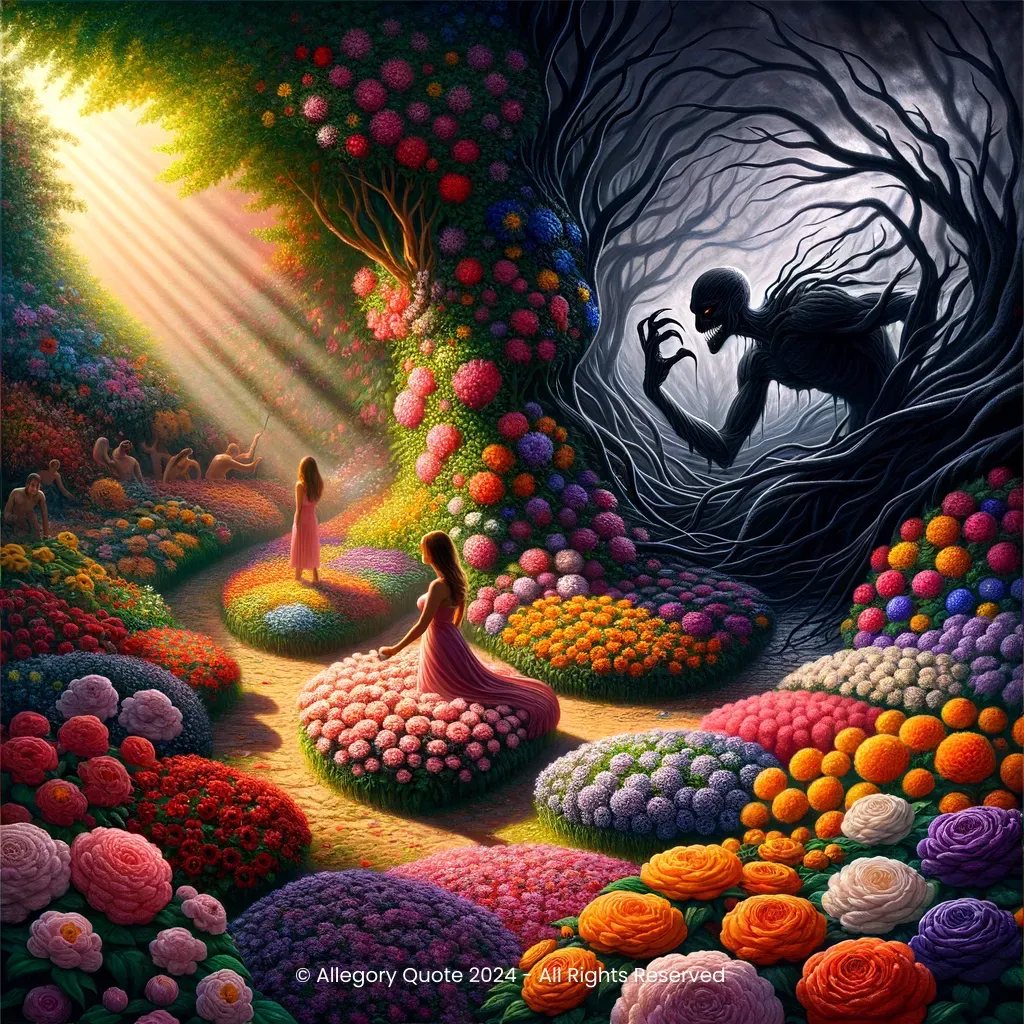Jealousy is the grave of affection

0
0
0
0
- Meaning
- This phrase means that jealousy can destroy love and affection. Just as a grave signifies the end or death of life, jealousy can signify the end or death of warm, loving feelings between people. When jealousy enters a relationship, it often leads to distrust, resentment, and conflict, ultimately burying the affection that once existed.
- Allegory
- The image includes a vibrant garden to symbolize affection and love, representing warmth and life. The dark, menacing figure represents jealousy as it kills the flowers, signifying the destructive power of jealousy on relationships. The shadows spreading from the corner reflect how unchecked jealousy can infiltrate and destroy a once healthy and flourishing relationship. The contrasting light and darkness emphasize the stark difference between affection and jealousy’s cold grip, helping to visually convey the phrase's powerful message.
- Applicability
- In personal life, this phrase serves as a cautionary reminder to keep jealousy in check. Whether in romantic relationships, friendships, or professional settings, fostering clear communication, trust, and self-awareness can prevent jealousy from taking root and negatively impacting relationships. Use this wisdom to cultivate healthy and transparent interactions.
- Impact
- This phrase has a powerful cultural impact because it succinctly captures a universally understood human experience. It resonates deeply with people who have witnessed or experienced how jealousy can sour relationships. It has inspired discussions in psychology, philosophy, and self-help movements on the importance of emotional health and relationship dynamics.
- Historical Context
- While the exact historical origin of this phrase is unclear, themes of jealousy and its destructive nature have been explored throughout history, particularly in literature and philosophy. For example, Shakespeare's "Othello" delves deeply into the calamitous consequences of jealousy.
- Criticisms
- One potential criticism is that this phrase might oversimplify complex emotional dynamics. Not all jealousy is inherently destructive—sometimes it can prompt important conversations and grow trust. Others might argue that the phrase doesn't account for the potential underlying issues that cause jealousy, such as insecurity or a lack of communication, which if addressed, can strengthen relationships.
- Variations
- Variations of this phrase can be found across many cultures, often emphasizing the importance of trust and open communication in relationships. Different cultures might interpret the destructive power of jealousy through various allegories and proverbs, but the underlying message remains similar universally.
-

Gratitude is not only the greatest of virtues, but the parent of all others.
-

Pain is inevitable, suffering is optional.
-

A good reputation is more valuable than money.
-

If you would be loved, love, and be lovable.
-

That government is best which governs least.
-

No act of kindness, no matter how small, is ever wasted.
-

Love is a force that transforms and improves the Soul of the World.
-

The saddest thing about betrayal is that it never comes from your enemies.
No Comments